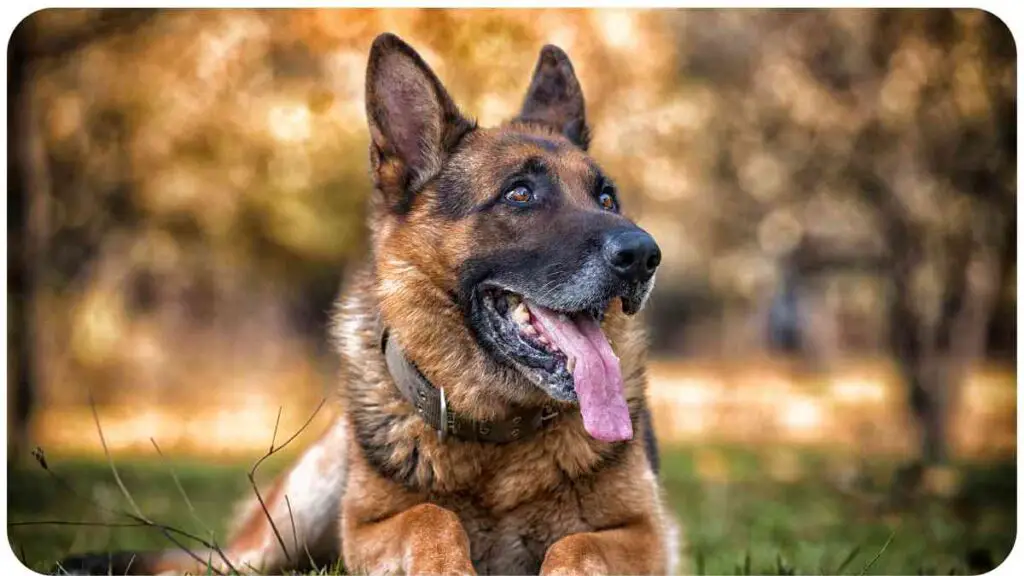Welcome to the world of Rottweilers and their potential companions! Choosing the right breed to complement your Rottweiler can be an exciting yet challenging endeavor. As a seasoned professional in the field of dog breeding and companionship, I’m here to guide you through the process.
In this article, we’ll explore the traits that make a great companion dog, introduce some popular companion breeds, and discuss the factors you should consider before making this important decision.
| Key Takeaways |
|---|
| 1. Choose a companion dog based on your Rottweiler’s temperament and energy level. |
| 2. Introduce potential companions gradually and prioritize compatibility. |
| 3. Proper training and socialization are essential for a harmonious pairing. |
| 4. Maintain a consistent routine and give both dogs equal attention. |
| 5. Regular grooming and healthcare are crucial for both dogs’ well-being. |
| 6. Be cautious of common mistakes, such as neglecting training or forcing the match. |
| 7. Consider adoption as a compassionate option for finding a companion. |
| 8. Seek professional help if your Rottweiler displays aggression towards other dogs. |
| 9. Each dog is unique, so patience and understanding are key to a successful pairing. |
Now, let’s embark on this journey to find the perfect four-legged friend for your Rottweiler.
2. Understanding Rottweilers

Rottweilers are renowned for their loyalty, strength, and protective instincts. They are often described as confident and bold. These qualities can make them wonderful companions, but it’s crucial to find a breed that harmonizes with their unique temperament.
When it comes to high-energy dogs, like Border Collies, it’s crucial to find the perfect companion. Discover how to balance their energy with the right match. Learn more about companion dogs for Border Collies to ensure a harmonious relationship.
3. Traits of a Companion Dog
A companion dog should possess qualities that complement a Rottweiler’s personality. These traits include friendliness, adaptability, and a desire to socialize. A great companion should also match their energy levels, providing both playfulness and comfort.
4. Popular Companion Breeds
Now, let’s delve into some of the most suitable companion breeds for Rottweilers:
4.1. Labrador Retriever

| Trait | Labrador Retriever |
| Temperament | Friendly and gentle |
| Size | Medium to large |
| Activity Level | High |
| Compatibility | Excellent |
| Training Needs | Moderate |
The Labrador Retriever is a top choice for many Rottweiler owners. Their friendly disposition and willingness to please make them fantastic companions. They have the energy to keep up with Rottweilers but also know when to relax.
Beagles are known for their harmonious hound nature, but choosing the right companion is essential. Explore the traits that make the ideal companion for Beagles. Read about best companion dogs for Beagles and create a balanced pack.
4.2. Golden Retriever

| Trait | Golden Retriever |
| Temperament | Affectionate and kind |
| Size | Large |
| Activity Level | Moderate to high |
| Compatibility | Excellent |
| Training Needs | Moderate |
Golden Retrievers are known for their loving nature and patience, making them a great match for Rottweilers. They share the energy levels needed for play and exercise.
4.3. German Shepherd

| Trait | German Shepherd |
| Temperament | Loyal and obedient |
| Size | Medium to large |
| Activity Level | High |
| Compatibility | Good |
| Training Needs | High |
German Shepherds are intelligent and loyal, making them suitable companions for Rottweilers. However, their high training needs may require dedicated effort.
Huskies are known for their spirited personalities, and finding the right companion can be a game-changer. Discover who can be the calm to their storm. Explore more about companion dogs for Huskies to ensure a happy Husky home
4.4. Beagle

| Trait | Beagle |
| Temperament | Curious and friendly |
| Size | Small to medium |
| Activity Level | Moderate |
| Compatibility | Good |
| Training Needs | Moderate |
Beagles are social and inquisitive dogs that can provide companionship to Rottweilers while not overpowering them with energy.
4.5. Boxer

| Trait | Boxer |
| Temperament | Fun-loving and loyal |
| Size | Medium to large |
| Activity Level | High |
| Compatibility | Good |
| Training Needs | Moderate |
Boxers are known for their playful nature, making them a lively companion choice for Rottweilers. They enjoy physical activities and can keep your Rottweiler engaged.
Shih Tzus are adorable, but they need a compatible companion. Find out which dog breeds make the perfect match for Shih Tzus. Dive into the world of companion dog breeds for Shih Tzus to create a harmonious household.
5. Factors to Consider
When choosing the best companion for your Rottweiler, it’s crucial to consider various factors to ensure a harmonious pairing.
5.1. Temperament
Matching temperaments are key to a successful dog pairing. If your Rottweiler is calm and collected, a hyperactive companion might create stress. Assess your Rottweiler’s personality before deciding.
5.2. Size and Activity Level
Consider the size and energy levels of both breeds. A companion that matches your Rottweiler’s size and activity level will ensure they can play and relax together comfortably.
5.3. Compatibility
Ensure that the two breeds get along. It’s advisable to introduce them before making a final decision. Look for signs of compatibility such as playfulness and lack of aggression.
5.4. Training Needs
Different breeds have varying training requirements. If your Rottweiler has specific training needs, make sure the companion breed is a good match in this regard.
6. The Best Companion for Rottweilers
After careful consideration, it’s clear that there isn’t a one-size-fits-all answer to the question of which breed is the best companion for Rottweilers. The best companion depends on your Rottweiler’s individual personality and your lifestyle.
If your Rottweiler is more reserved and calm, a breed like the Golden Retriever or Beagle might be an excellent choice. These breeds are known for their affectionate and friendly nature, making them compatible with the Rottweiler’s temperament.
On the other hand, if your Rottweiler is highly active and requires a more energetic companion, the Labrador Retriever or Boxer could be a great fit. These breeds match the Rottweiler’s energy levels and love for play.
It’s essential to prioritize compatibility and introduce potential companions to your Rottweiler before making a decision. Observing their interactions can help you gauge how well they’ll get along.
Golden Retrievers are wonderful companions, but finding their perfect match can enhance their lives. Discover which dogs are the best companions for Golden Retrievers. Learn more about companion dogs for Golden Retrievers to ensure a happy tail-wagging friendship
7. Rottweiler-Companion Dog Pairing Success Stories
To provide some real-world perspective, let me share a couple of success stories from Rottweiler owners who found the perfect companion for their furry friend.
Case 1: Lucy and Bella
Lucy, a Rottweiler, was known for her calm and gentle nature. Her owner, Sarah, wanted to find a companion to keep Lucy company during the day. After some research and meetings with various breeds, Sarah decided on Bella, a Golden Retriever.
Bella’s affectionate personality matched Lucy’s temperament perfectly. They quickly formed a strong bond and became inseparable. They enjoyed long walks together and spent lazy afternoons lounging in the backyard. This pairing was a match made in heaven, bringing joy and companionship to both dogs and their owner.
Case 2: Max and Rocky
Max, an active Rottweiler, needed a playmate who could keep up with his energy levels. His owner, Mark, decided to adopt Rocky, a lively Labrador Retriever. From day one, Max and Rocky were like two peas in a pod.
Their days were filled with exciting games of fetch, long hikes, and enthusiastic playdates at the dog park. Mark marveled at how well the two dogs got along and how their friendship brought a new level of excitement and happiness to Max’s life.
These stories emphasize the importance of understanding your Rottweiler’s needs and personality when selecting a companion dog. The right match can lead to a harmonious and joyful household.
8. Training Tips for a Happy Duo
Ensuring a happy and harmonious relationship between your Rottweiler and their companion involves proper training and socialization. Here are some valuable training tips:
8.1. Socialization
Introduce your Rottweiler and their companion to various environments, people, and other dogs from a young age. Socialization helps prevent fear or aggression issues.
8.2. Obedience Training
Consistent obedience training is essential for both dogs. Teach them basic commands like “sit,” “stay,” and “come.” This ensures they respond to your commands and behave well in different situations.
8.3. Exercise and Play
Both Rottweilers and their companions need regular exercise. Create a daily exercise routine that includes walks, playtime, and mental stimulation. Engaged dogs are happy dogs.
8.4. Mental Stimulation
Challenge their minds with puzzle toys and interactive games. Mental stimulation can prevent boredom and destructive behavior.
8.5. Bonding Activities
Engage in bonding activities with both dogs, such as group training sessions, joint playtime, and shared adventures. These activities strengthen their connection and reinforce positive behavior.
9. Common Mistakes to Avoid
When pairing a companion dog with your Rottweiler, it’s essential to be aware of common mistakes to ensure a smooth transition and a harmonious relationship:
- Ignoring Compatibility: Don’t assume that any dog will get along with your Rottweiler. Always introduce them and observe their interactions before committing.
- Skipping Training: Neglecting training for both dogs can lead to behavioral issues and conflicts. Invest time in proper training and socialization.
- Neglecting Exercise: Both Rottweilers and their companions need regular exercise. Failing to provide this can result in pent-up energy and frustration.
- Forcing the Match: If two dogs don’t get along, forcing them to live together can lead to stress, aggression, and anxiety. Be prepared to consider alternative options if they don’t click.
- Lack of Supervision: Never leave the two dogs unsupervised initially. Even if they seem to get along, supervision is essential until you’re confident in their relationship.
10. Maintaining a Harmonious Household
Maintaining a harmonious household with your Rottweiler and their companion requires ongoing effort and attention. Here are some tips to keep the peace:
- Consistency: Stick to consistent routines for feeding, playtime, and training. Dogs thrive on predictability.
- Space: Ensure each dog has their space and private time. This helps prevent conflicts and gives them a sense of security.
- Separate Feeding: Feed the dogs separately to avoid food-related disputes. This also helps in monitoring each dog’s diet.
- Equal Attention: Give both dogs equal attention to prevent jealousy. Make time for one-on-one interactions with each dog.
- Conflict Resolution: Learn to recognize signs of tension or conflict and intervene calmly to prevent escalating situations.
11. Health and Care Considerations
Taking care of your Rottweiler and their companion involves regular vet visits, proper nutrition, and grooming. Ensure both dogs receive:
- Vaccinations: Keep both dogs up-to-date with vaccinations and preventive medications.
- Healthy Diet: Feed them high-quality, balanced diets suitable for their age and size.
- Regular Exercise: Continue providing adequate exercise and mental stimulation to keep them healthy and happy.
- Grooming: Attend to their grooming needs, including brushing, nail trimming, and dental care.
- Health Monitoring: Watch for signs of illness or discomfort and seek veterinary care promptly.
12. Grooming Needs
Different breeds have varying grooming requirements. Here’s a quick overview of the grooming needs for the companion breeds discussed earlier:
- Labrador Retriever: Regular brushing to manage shedding, occasional baths, and attention to ears and nails.
- Golden Retriever: Frequent brushing due to shedding, regular baths, and ear and dental care.
- German Shepherd: Regular brushing, occasional baths, and focus on ears and nails. Their thick coats require more attention during shedding seasons.
- Beagle: Short-haired coat is low-maintenance; brushing, occasional baths, and ear cleaning are sufficient.
- Boxer: Short coat requires minimal grooming; regular brushing and basic care of ears, nails, and teeth.
13. Conclusion
In the quest to find the best companion dog for your Rottweiler, remember that there’s no one-size-fits-all answer. The ideal companion depends on your Rottweiler’s personality, energy level, and your lifestyle.
Take your time to assess compatibility, introduce potential companions, and prioritize proper training and socialization. By considering these factors and being attentive to both dogs’ needs, you can create a harmonious and joyful household.
The journey of finding the perfect companion for your Rottweiler can be incredibly rewarding, leading to a lifelong friendship that enriches both your life and the lives of your beloved dogs.
Further Reading
Here are some additional resources to explore for more information on choosing the best companion dog for Rottweilers:
- Pinterest – Companion Dog Ideas
- Discover visual inspiration and ideas for choosing the right companion dog for your Rottweiler.
- TheGermanShepherder.com – The 6 Best and Worst Companion Dogs for Rottweilers
- This comprehensive article provides insights into the top companion dog choices for Rottweilers and also highlights breeds to approach with caution.
- NotABully.org – Best Companion Dogs for a Rottweiler
- Explore this resource to learn more about suitable companion dog options and the considerations involved in pairing them with Rottweilers.
FAQs
Can I pair a Rottweiler with a small breed?
Yes, it’s possible to pair a Rottweiler with a small breed, but careful consideration of their compatibility and supervision is essential.
What if my Rottweiler is aggressive towards other dogs?
If your Rottweiler displays aggression towards other dogs, it’s crucial to seek the guidance of a professional dog trainer or behaviorist to address and correct this behavior.
Is adoption a better option than buying a companion dog?
Both adoption and purchasing are valid options. Adoption can save a dog’s life and provide a loving home, but consider your Rottweiler’s temperament and whether they will get along with a new dog.
How should I introduce my Rottweiler to a potential companion?
To introduce your Rottweiler to a potential companion, do so gradually on neutral ground, monitor their interactions closely, and seek professional guidance if any issues arise.
Are there specific training techniques for a Rottweiler-companion duo?
Yes, there are specific training techniques that focus on socialization, obedience, and bonding between the two dogs. Seek advice from a professional dog trainer for guidance on these techniques.

I’m Dr. Hellen James, I’ve spent my career working with dogs, and I’ve seen first-hand how important it is to understand the individual needs of each breed. I want to share my knowledge of dog breeds with you so that you can make informed decisions about which dog will be best for your household and lifestyle.

